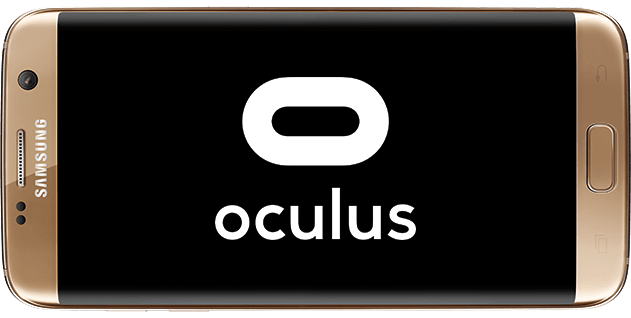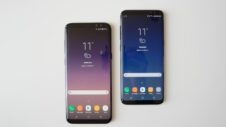Samsung's Galaxy S7 and Galaxy S7 edge have been a hit with buyers, particularly in my home country (it's about time Americans see the light!), but Samsung's decision to give away Gear VR for free with the purchase of its latest “Galaxies,” along with other deals and promos by way of Samsung's carrier cooperation has some in this galaxy (the world, not the phone series) laughing at the Korean giant. “They're desperate,” I've been told. “They're giving it away because, even with a $99 price tag, no one would want it,” someone else said to me.
As with the Gear S2, the demand for Gear VR is just as desperate, these critics say unashamedly. And yet, something tells me that they've yet to consider just how genius and calculated Samsung's move has been into VR. In fact, I think that many Samsung faithful have not stepped back to think about how brilliant a move Samsung has made.
So, with the criticisms behind us, and Samsung's greatness in front of us, let's get to it.
There's nothing desperate about Samsung's Galaxy S7/Galaxy S7 edge free Gear VR and free six-game bundle promo
It's simple logic: if you have a business, and you don't find a way to entice customers to “sample” what you're offering, you won't stay in business very long. Customers having their first exposure to virtual reality won't pay $200, $600, or $800 for a headset; what better way to entice customers than to have a free Gear VR promo for Galaxy S7 and Galaxy S7 edge pre-orders?
Not only could Samsung award the customer with some promo gift(s), including the free six-game bundle, but Samsung could get customers to try out Gear VR without spending any money. What's not to like when you can try something for free, no strings attached, and pay nothing if you decide in the end it's not for you? “Trying without buying” is possible, and Samsung made it happen with Gear VR.
Those who say it's a desperate move by Samsung have yet to consider how Samsung stacks up against the other companies in the market, such as LG with its 360 VR headset, HTC/Valve with the Vive, and Google with Google Cardboard (not counting others like Oculus and the Oculus Rift, Sony with its PlayStation VR, etc.). Which of these companies has given away a $99 headset and a six-game bundle as a promotional?
Some have used free battery packs/charging cradles, and even Oculus is giving away a free Microsoft Xbox controller, Oculus's own Touch controller, and two-game bundle to Rift owners out of the box, but Samsung is still giving you more with Gear VR because 1) you don't need a controller for most games in Gear VR; you use the trackpad already on the side of the headset and 2) you're getting 6 free games versus 2 free games (Oculus Rift) in addition to the free Gear headset.
With HTC's Vive headset, buyers will receive two free games (“Job Simulator” and “Fantastic Contraption”), two hand-tracking wireless controllers, and two body movement-tracking sensors. While HTC's Vive headset wants users to have controllers (and gives two of them, in fact), Samsung's Gear headset lets you use trackpad controls on the headset to play most games (though not all).
There's nothing desperate about Samsung's Galaxy S7/S7 edge/free Gear VR and six-game bundle promo, and its success is a catalyst for the upcoming Galaxy Note 6 pre-order time.
There's nothing desperate about Samsung's Gear VR pricing
For those who have decided not to purchase the latest smartphones but want to pick up the Gear VR headset, Samsung has given the device a competitive retail price of $99.
The $99 price tag was spot-on when Samsung made its Gear VR announcement, and it's still spot-on now when compared to all other major VR headsets on the market. Yes, the $599 Oculus Rift commands its respect in the market, but $599 is too steep for consumers who may decide that they quickly see nothing attractive about it. Oculus is to be commended for its partnership with Samsung in the Gear VR, though, and the Gear VR, in this light, becomes a budget-friendly version of the Oculus Rift (of sorts). HTC and Valve put themselves out of the running with their $799 Vive headset designed to attract the most ardent VR gamers.
As for LG, it decided to introduce its 360 VR headset that retails for $199.99 or $200, a price that is twice as expensive as Samsung's Gear VR. VR is a relatively new field for most non-tech-savvy consumers, and a $200 price tag for a VR headset won't entice much. The key to building demand for a product is to release it with an ultra-affordable price tag. Samsung is the only one who's done it for the consumer market.
There's nothing desperate about Samsung's Gear VR pricing; rather, it's a testimony to Samsung's business prowess, a calculated move that has produced a truly consumer-based VR headset. The other major headset makers can't say that about their offerings.
There's nothing desperate about Gear VR implementation
If a particular mobile device mandates additional equipment for consumers to use it, few will.
Samsung has had to consider the consumer who wants an easy setup out of the box – no additional hardware needed. And this is why Gear VR was so masterfully designed and announced: it doesn't require any resources except the headset and one of the Korean giant's most recent “Galaxies” (Galaxy S6/S6 edge, Galaxy Note 5, Galaxy S7/S7 edge). In contrast, you'll need a high-end gaming PC with at least a 2.4Ghz, quad-core CPU, 64GB hard drive, an NVIDIA or AMD chip, with at least 1GB of dedicated RAM to power the Oculus Rift. Notice I said, “at least,” meaning that this high-end VR experience will mandate some serious PC hardware to make it happen. Oculus is creating a “rift” with “The Rift,” some have said. The same can be said for the HTC Vive.
LG's 360 VR headset is as close as it comes to a consumer VR headset to rival Samsung, but Samsung's Korean rival seems to get two things wrong about the 360 VR: in addition to the price tag, LG has also failed in the implementation of 360 VR. While Samsung's Gear VR lets you place your phone inside the headset, LG forces you to connect its 360 VR headset to the G5 smartphone, externally. Now, this is okay for 360 VR as long as you're sitting down; stand up, and your brand new G5 could become a victim of an accidental torture test. Gear VR protects the phone and delivers the fun, simultaneously.
There's nothing desperate about the implementation of Gear VR, a device that was designed to protect smartphones while also protecting consumers in more ways than one.
Conclusion
Samsung's Gear VR is a consumer VR headset that doesn't stand up to the giants when it comes to raw power. There's a simple reason for this: Samsung has a different VR sales strategy than HTC and Oculus with their high-priced headsets. And yet, it leaves me with one question: why is it that Samsung is the only giant out in VR trying to court the mass market with affordable specs and an affordable price tag? Why is it that Samsung gets what it means to court the consumer for mass market adoption, while other companies aim for an extremely small, practically nonexistent high-end VR market? With consumer demand firmly in its grasp, Samsung's upcoming untethered VR headset will pay big dividends (figuratively and literally). Google's Daydream VR headsets will chase after the same consumer market (and we applaud Google for following in Samsung's footsteps with a phone-based device), but again, the question to be asked is the following: Why did it take Google 2 years after Samsung started dabbling into VR to announce a platform for the next gaming frontier?
There's nothing desperate about Samsung's Gear VR promos, pricing, or implementation. Samsung is determined to get your business, even if it means the company has to give a little to get a lot. Whatever greatness can be attributed to the Oculus Rift and HTC Vive, though, Samsung's Gear VR headset will be the one to dominate the market — and the results of that domination will be fun to watch, both in actual reality and virtual reality.










